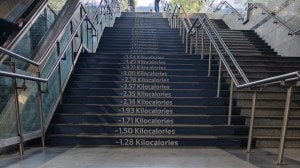German gets Nobel in chemistry for research on thinning ozone layer
Gerhard Ertl of Germany won the Nobel Chemistry Prize on Wednesday, his 71st birthday...

Gerhard Ertl of Germany won the Nobel Chemistry Prize on Wednesday, his 71st birthday, for work that has become invaluable to the modern chemical industry and helped the fight to fix the ozone hole.
“This science is important for the chemical industry and can help us to understand such varied processes as why iron rusts, how fuel cells function and how the catalysts in our cars work,” the jury said in its citation.
It can also explain why Earth’s protective ozone layer is damaged through chemical reactions on the surfaces of minute ice crystals in the stratosphere, the panel added.
Ertl is a professor emeritus at Berlin’s Fritz Haber Institute, which is part of the Max Planck Society.
The Nobel committee lauded him as a fore runner in surface chemistry, a branch that evolved in the 1960s, and one of the first to understand the potential of modern technology for exploring the new field.
Ertl’s achievement was to build a rigorous step-by-step experimental method to build up a complete picture of a chemical reaction on a solid surface.
These experiments are high-ticket affairs, as they require a laboratory that is utterly free of contamination and able to apply individual layers of atoms and molecules to a pure surface to observe each phase of the reaction.
Ertl “laid the methodological foundations for an entire field of research,” the citation said.
“The great reliability of Ertl’s results is due to the meticulous precision in his work combined with an outstanding capacity to refine problems. He has painstaking and systematically searched for the best experimental techniques to investigate each separate question.”
Born on October 10, 1936 in Bad Cannstadt, Ertl has received numerous honours and awards throughout his career, and is a member of several scientific academies.
“I was speechless at first when I got the news from Stockholm,” Ertl told AFP. “Mainly I feel proud.” He said the honour was a once-in-a-lifetime birthday present.
“I can’t say I expected the prize but I knew I was on the list of candidates,” he said.
Ertl is the second German to win a Nobel prize this year. Yesterday, Peter Gruenberg shared the phyics prize with Albert Fert of France for a discovery that led t the miniaturised hard disk.



- 01
- 02
- 03
- 04
- 05




























